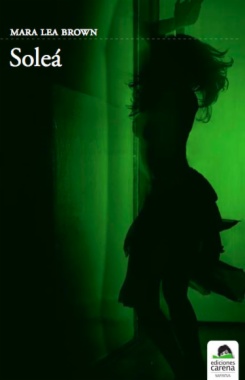

Mara Lea Brown in her childhood came to live to a coastal village of Andalusia when the duende, this stubborn Andalusian gipsy spirit, was winning the battle against the pro-Franco folk and beggining another one against the guirigay flamenquista that was preparing itself for the wave of thirsty tourists to know our roots.
It is not known neither when nor how she saw herself assaulted by the duende that led her to contorting on the tablaos, but since then she could not free herself from it. So much it is that now the duende, in its current fight for surviving the new changes that devastate its land, has used her as its' medium to reveal a fragment of its own history, which is the history of flamenco. Soleá narrates the daily life of a village in which the duende was the owner and master of the souls that were calling it to celebrate memorable spontaneous partyings. But time goes by, and many of those who before let thmeselves let go with frenzy, now pass the day planning some choreography up to the most minimal movement of the little finger of the left hand. Others, simply do not dance, do not sing, do not touch, overwhelmed by daily responsibilities, schedules and money. The duende does not have patience for these things. It starts fearing that its Toñi, one of the last ones who could it, will not return to dance, and if it wants to survive, it will have to find someone who will allow it to express again.